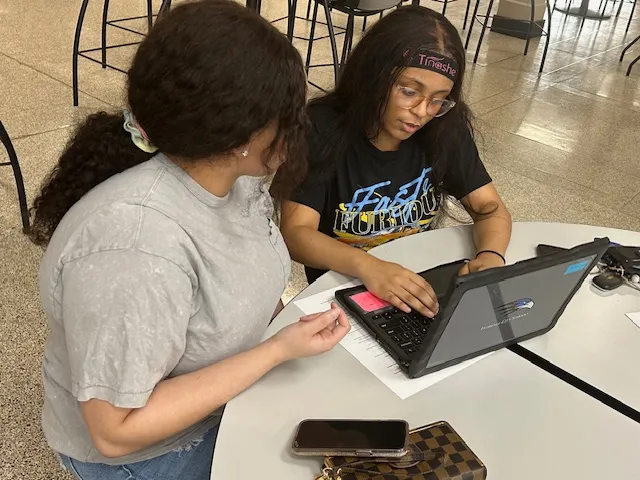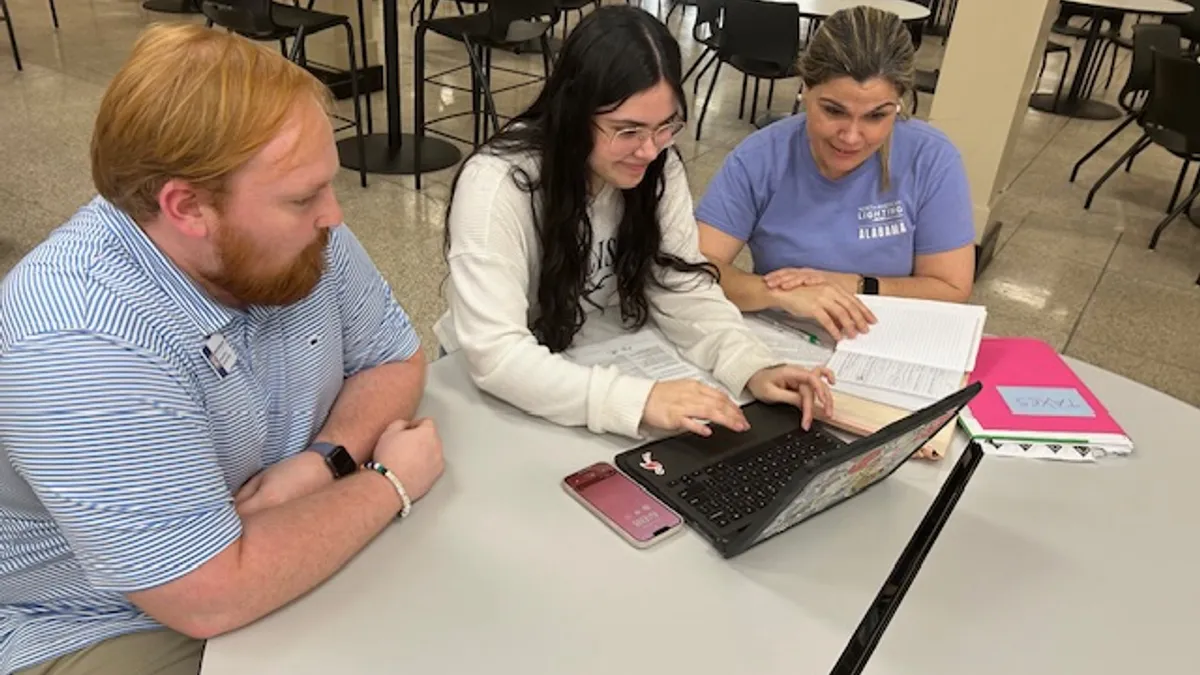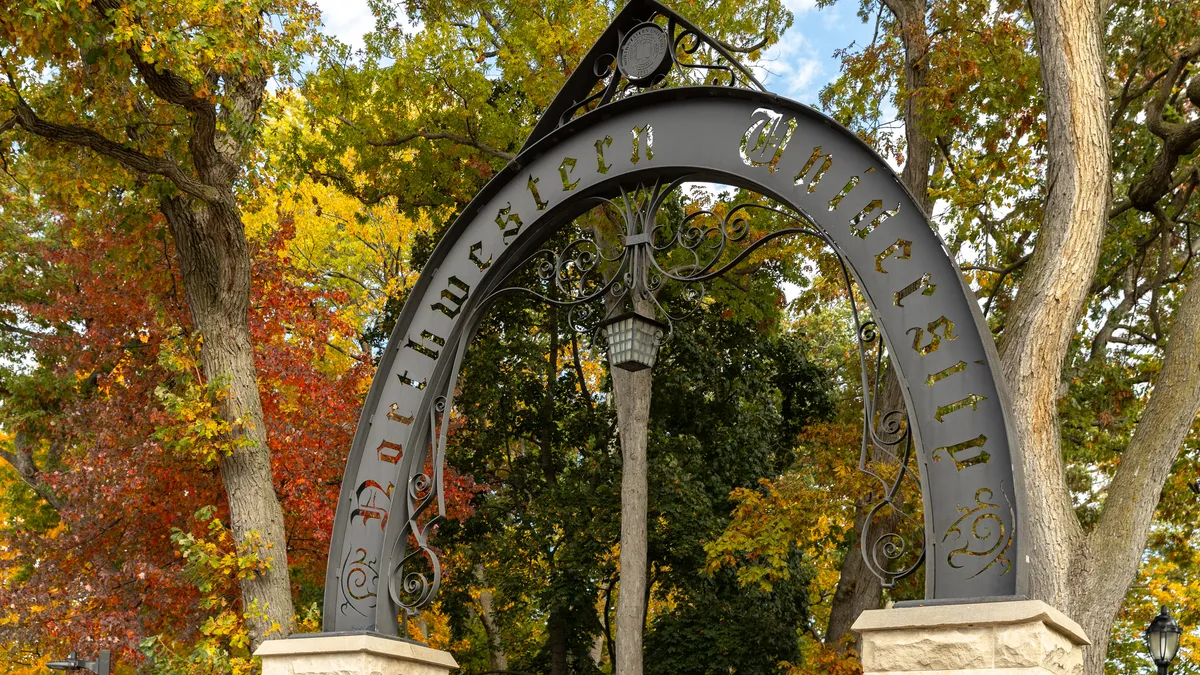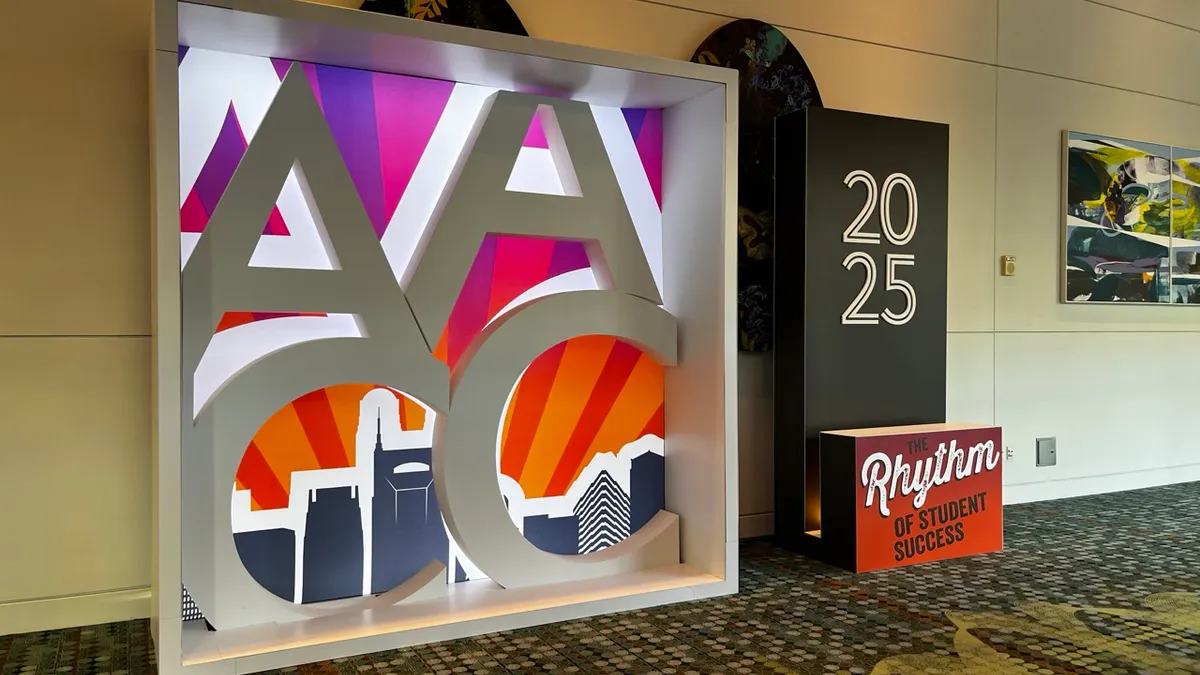As the stress of this year's college application process seems never-ending, high schools have ramped up communications to high school seniors and their parents, offered extra supports to navigate the college admission process, and tried to defuse the anxiety through fun activities.
Adding to the normal stress of college application season, processing delays this year for transmitting Free Application for Federal Student Aid data to colleges has frustrated many who are navigating an already nerve-racking and complex college application process.
Those processing delays are narrowing the window between when colleges give students notice of financial aid packages and the deadline for when students need to tell colleges they want to enroll.
In other words, this year's seniors have potentially less time to weigh financial aid offerings at different colleges, which is making college decisions much more difficult.
In a typical year, many college decision deadlines are May 1. However, several schools have announced extended deadlines this year, according to a tracker from the National Association for College Admission Counseling.
"The timing and the new form and all of that has really shifted in terms of how we're able to help them [students]," said Meg Huggins, academic dean for innovation at River Bluff High School in South Carolina. "It's also impacted whether or not they're able to make decisions on where they're going, based on how and when they can get information around qualifying for any FAFSA funds."
The U.S. Department of Education, which leads the FAFSA process, said it began transmitting student data to colleges the weekend of March 9, and that it has plans to ramp up information sharing over the next few weeks.
Typically, the FAFSA form is available for students in October, and colleges receive the student information shortly after so they can notify applicants of aid amounts. But this year's process was delayed several months as the Education Department developed a new, shorter and easier-to-use version and prepped it for public use. But the rollout hit snags.
Consequently, fewer students have completed the FAFSA. As of March 8, 31% of high school seniors submitted a FAFSA form. That's down 33% from the same time last year, according to the National College Attainment Network's FAFSA Tracker.
The tracker also shows that submissions from the Class of 2024 who attend low-income high schools are down 41% compared to last year. Nationally, there had been a total of 1.3 million FAFSA submissions.
As the class of 2024 and their families wait in financial aid limbo, school administrators and other experts share advice on proactive steps to take.
Keep communicating
Even if students have all their applications in and their FAFSA forms completed, it's vital that school college counseling offices, students and families remain open to communication. Schools should make it known they are a resource that families can turn to regarding strategies for weighing college acceptances and financial aid offerings, said several college admissions and education experts.
This can be especially helpful for students who are neurodivergent and their families, said Andrew Kahn, associate director of behavior change and expertise at Understood, a nonprofit that provides resources for people with learning differences.
For example, school staff may be able to help students and their families create timelines for decision deadlines. Education leaders can also help students and families understand what information should be factored into making a college decision, including financial and academic elements and any accommodations a student may need.
"Having the ability to really gather enough information is key," Kahn said.
Huggins said a school's outreach to students and families of first generation college-goers is a specific area of focus for her school. "That group is the group that is in most need of FAFSA as far as even being able to consider going to college, and so that has been a piece that we've tried to navigate just in helping them complete that."
This year, there have been "tons of phone calls" coming into the counseling office, as well. She credits the counseling staff and social worker, in addition to others, who have been very attentive to student and family needs.
"I would just encourage parents, if there are concerns, to reach out" to their schools for support, Huggins said.
Bring people together for support
Florence City School District in Alabama, like many other districts and schools nationwide, sponsors FAFSA Nights for students and families so they can get help and information about filling out the form, said Roderick Sheppard, the district's director of student services.
In Alabama, all students are required to submit FAFSA forms. For its FAFSA Nights, the district gathers students, families, school counselors, college representatives, teachers and others in the community familiar with FAFSA to walk families and students through the process.
In the week before the event, the district promotes the gathering through messages on social media and on T-shirts worn by school staff, said Sheppard, who is also principal of the district's alternative high school, the Florence Learning Center.
There are 347 high school seniors in the district, Sheppard said.

"It's about trying to encourage kids to take advantage of the opportunities to be able to receive money from the government — whether it be a student loan or whether it be a Pell Grant — to be able to take the opportunity to be able to go to college to hopefully better themselves," Sheppard said.
This specific type of outreach is personal to Sheppard. "I've benefited from a Pell Grant because I filled out the FAFSA, and it made all the difference in the world" in his ability to go to college, he said. "If it weren't for the FAFSA, I don't know how I would have made it."
River Bluff High School also hosts a FAFSA Night every year, Huggins said. The school has 520 seniors this year, and they are encouraged — but not required — to submit the form.
Encourage broader financial opportunities
James Lewis, co-founder and president of the National Society of High School Scholars, an academic honor society, said students and their families should use this time to explore available scholarships from a variety of local, state and national sources.
Rather than become frustrated with the FAFSA processing delays, Lewis recommends that students and families "become laser-focused on looking for scholarships because it's not dead time."
Lewis added that there are 1.7 million scholarships and fellowships worth billions of dollars available for college students. Many of these scholarships are based on merit, financial or other criteria, he said.
Roderick also said that for students not planning to pursue a college degree, they may want to submit the FAFSA form and explore financial aid offerings that can assist with the costs of certificate programs.
"Not that every kid necessarily is going to go get a four-year college education, but you can go get a two-year certificate program and have help being able to pay for that and be able to make a nice living, given the fact that there's so many shortages in areas that only take a certificate," Sheppard said.
Be empathic to anxieties
Kahn said the college application process can be an "emotional rollercoaster," particularly for neurodivergent kids. "We spend a lot of our resources at Understood preparing them and their families to advocate, to have conversations throughout the application process," he said.
For their part, schools can help students in 9th-11th grades know what they should be doing at the different grade levels so they come into senior year prepared for the college application process, Kahn said.
Huggins said the FAFSA processing delays are contributing to students' heightened stress about having a smooth transition from high school to college. For example, some students are concerned that college decision delays will leave them with fewer options to be paired with a roommate of their choice or live in a preferred dorm on campus.
The stress can be higher for families who have had experience with the college application process in the past. "If you've gone through this process before, it feels, I think for that group of students and parents, even more urgent because they are not used to waiting," Huggins said.





















